The Microsoft Educator Community website (education.microsoft.com) is a central hub for educators worldwide that allows educators everywhere to connect and collaborate, find training and lessons, and grow their professional careers with Microsoft products such as 0ffice 365.
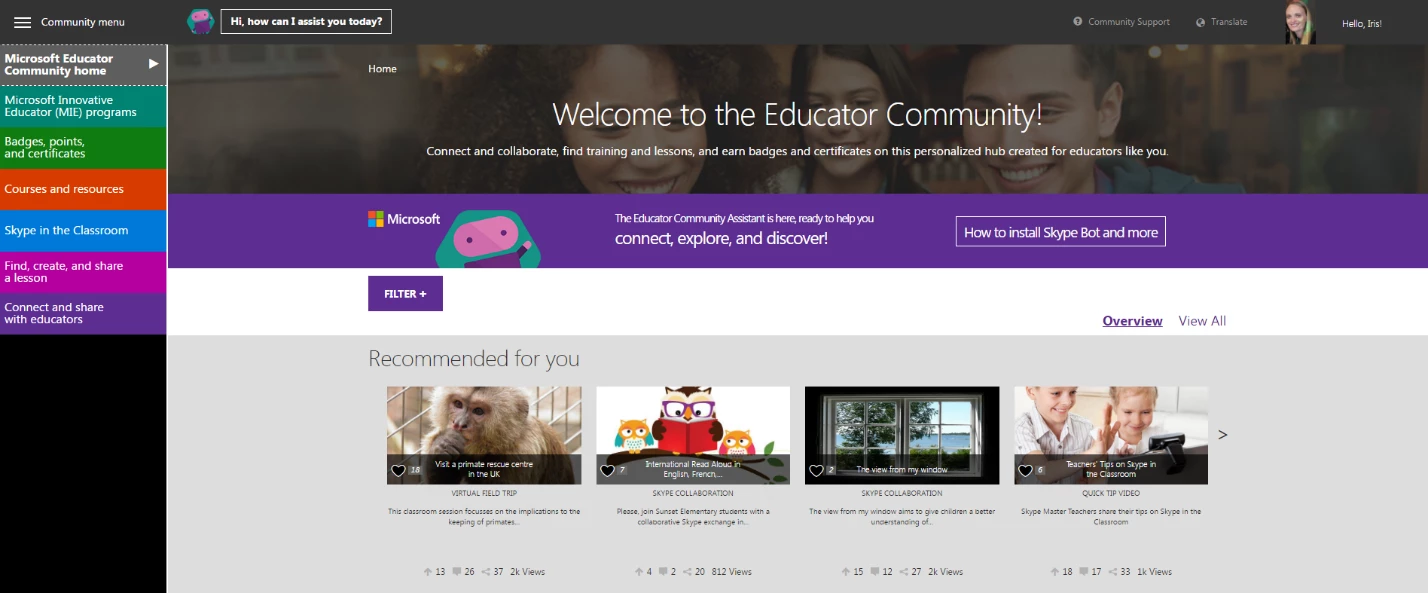
The site offers various content and activities for educators such as courses, resources, webinars, lesson plans, Skype activities and more. Currently it has more than 14,000 content pages. Dr. Iris Yuster – the business development manager for the website — wanted to use that content and previous user behavior to increase return visits, new registrations, personalize the customer experiences, and increase customer engagement.
The Educator Community team decided to use the Recommendations API, part of Micorsoft Cognitive Services and some clever user experience improvements to acomplish this goal. They use the service’s capability to provide Item-to-Item recommendations as well as User-to-Item recommendations.
The Educator Community used Item-to-Item Recommendations on the content pages. The Recommendations API uses machine learning techniques to present additional content related to the featured lesson/article. They called this module “Educators also viewed” and launched it on July 2016.
The module displays in two different ways:
A floating window on the right corner of content pages – visible in front of the page and floating while scrolling down
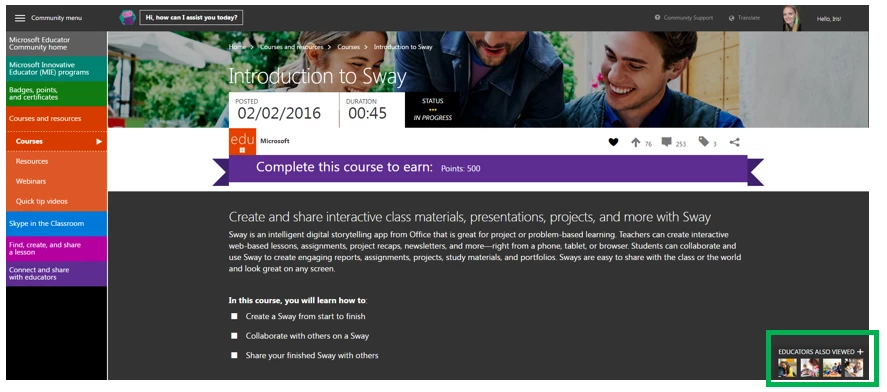
The floating window expands while clicking on it to display the items.
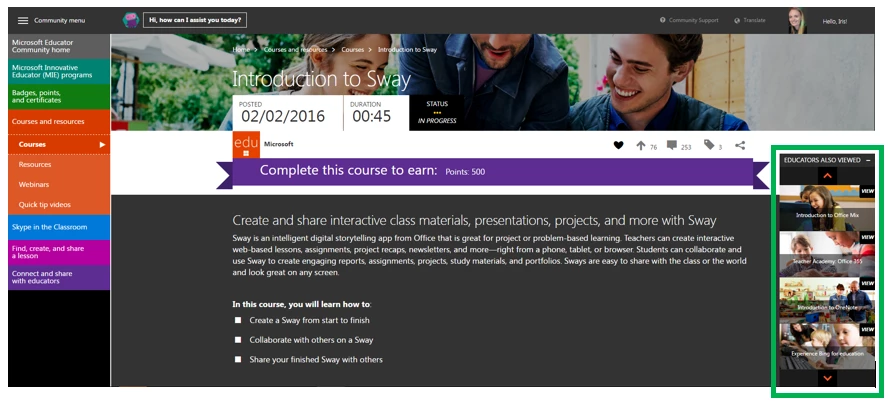
The module full view is also displayed on the bottom of the content page.

The Education Community team also wanted to personalize the first impression of a customer when they visit the site.
The team used individual educator behavior during previous visits to train a recommendations model that provides items that are uniquely tailored for that educator. They called this module “Recommended for you, ” and it is displayed on the home page and main landing pages.
Home page recommendations include a mix of content from all site categories that are relevant for the educator, while on category landing pages it displays only recommendations from the same category. For example, on the Courses landing page there are only recommended items from courses and related sub-categories:
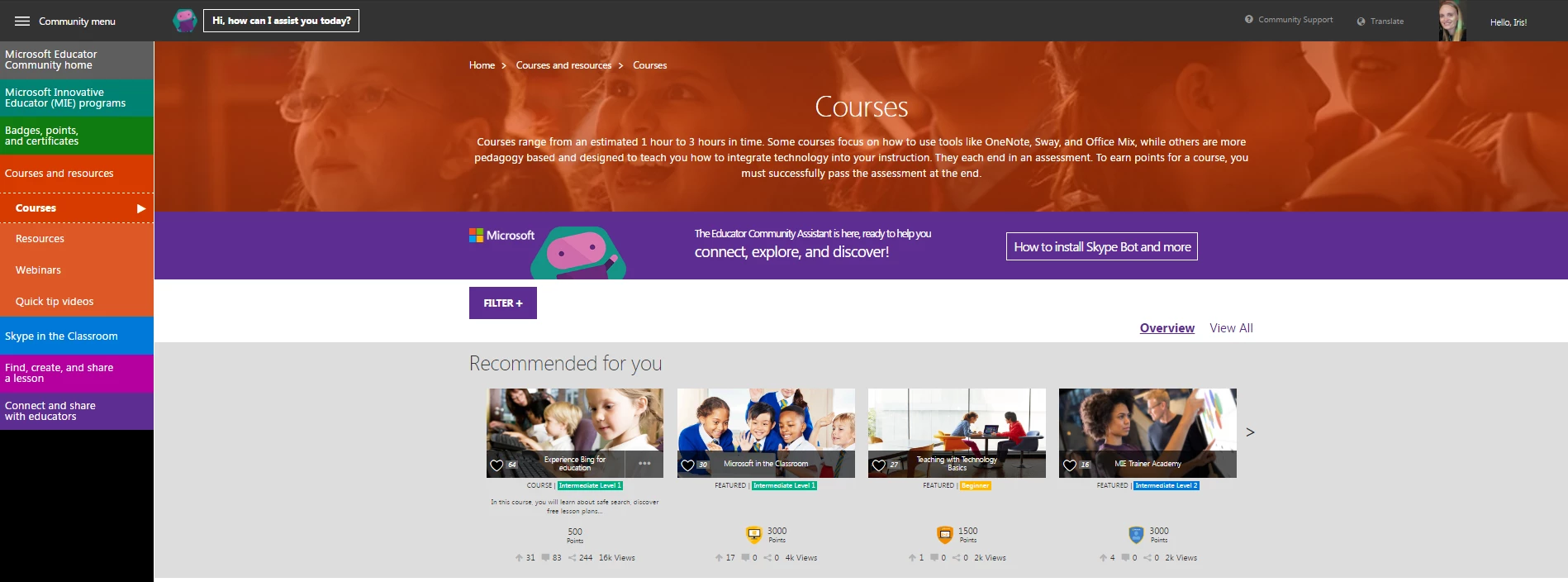
The Education community team performed an A/B test. Participants were assigned randomly into one of two groups: Group A (The Recommendations Group) saw the recommendations module on the content pages, while Group B did not see any recommendations.
The sample included 37,000 of educators for each group. Once an educator was placed in a group, they stayed in that group during all the testing period.
The impact was significant! These are some of the insights they gathered:
- About 6% of the customers clicked on recommended content. Those educators consumed more content, had longer visits, and returned for more visits as compared to the educators without recommendations.
-
Those in the Recommendations Group were about 3 times more likely to register as members of the Education community.
-
And educators in the Recommendations Group had significantly less bounce rate!
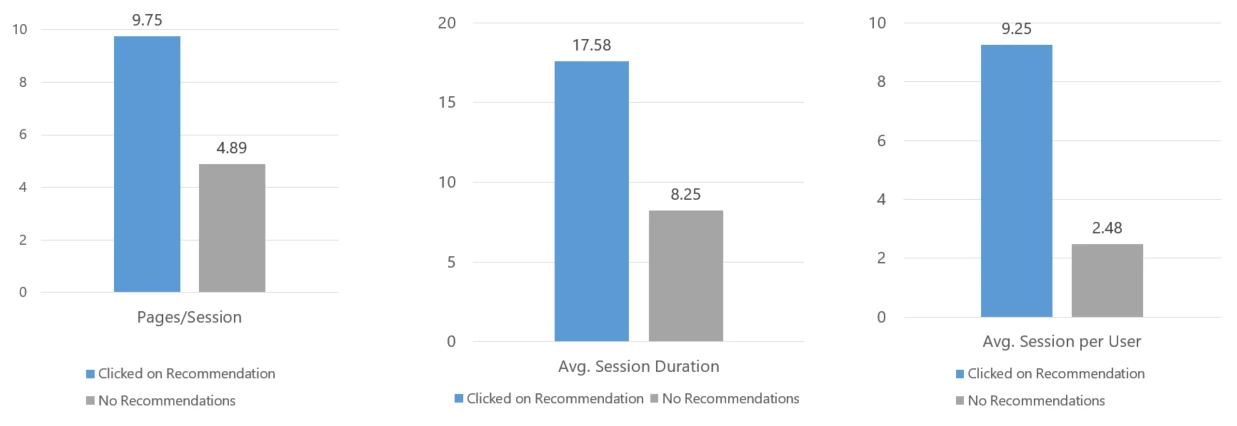
The bottom line…
Personalized recommendations are not a nice to have feature; it’s a must have on any site. The Recommendations API, part of Microsoft Cognitive Services helped the Educator Community to achieve and improve engagement APIs and provide a more personalized experience.
The Educator Community uses Microsoft Cognitive Services to put educators in the center, think about their personal interests, and create a place like home where they want to stay – before, during and after school.
Links
Microsoft Education Community
Recommendations API
Microsoft Cognitive Services
